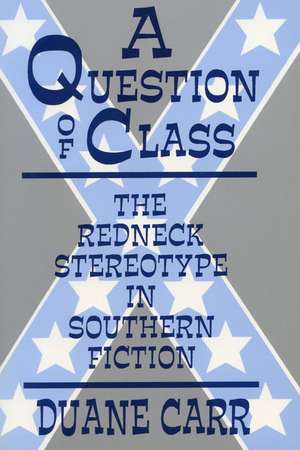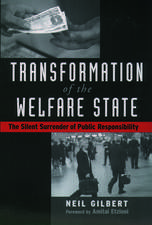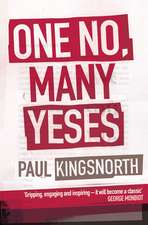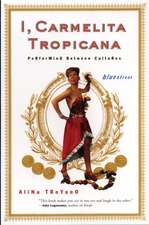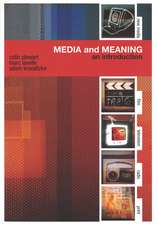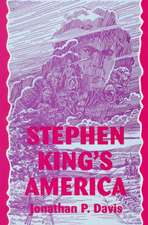A Question of Class: The Redneck Stereotype in Southern Fiction
Autor Duane Carren Limba Engleză Paperback – 14 iun 1997
“Rednecks” have long been subjects of scorn and ridicule, especially in the South. Carr probes the historical and sociological reasons for the descent of this social class into poverty, their inability to rise above it, and their continuing subjugation to a stereotype developed by others—and all too often accepted by themselves. Carr also records the progress in Southern fiction of this negative stereotype, from antebellum writers who saw rednecks as threats to the social order, to post-Civil War writers who lamented the lost potential of these people and urged sympathy and understanding, to contemporary writers who favor acceptance. Ultimately, this work is an evaluation of individual Southern fiction writers in their capacity to rise above stereotyping.
Preț: 100.22 lei
Nou
Puncte Express: 150
Preț estimativ în valută:
19.18€ • 20.02$ • 15.87£
19.18€ • 20.02$ • 15.87£
Carte disponibilă
Livrare economică 14-28 martie
Preluare comenzi: 021 569.72.76
Specificații
ISBN-13: 9780879727222
ISBN-10: 0879727225
Pagini: 196
Dimensiuni: 152 x 229 x 18 mm
Greutate: 0.32 kg
Ediția:1
Editura: University of Wisconsin Press
Colecția Popular Press 1
ISBN-10: 0879727225
Pagini: 196
Dimensiuni: 152 x 229 x 18 mm
Greutate: 0.32 kg
Ediția:1
Editura: University of Wisconsin Press
Colecția Popular Press 1
Descriere
“Rednecks” have long been subjects of scorn and ridicule, especially in the South. Carr probes the historical and sociological reasons for the descent of this social class into poverty, their inability to rise above it, and their continuing subjugation to a stereotype developed by others—and all too often accepted by themselves. Carr also records the progress in Southern fiction of this negative stereotype, from antebellum writers who saw rednecks as threats to the social order, to post-Civil War writers who lamented the lost potential of these people and urged sympathy and understanding, to contemporary writers who favor acceptance. Ultimately, this work is an evaluation of individual Southern fiction writers in their capacity to rise above stereotyping.
